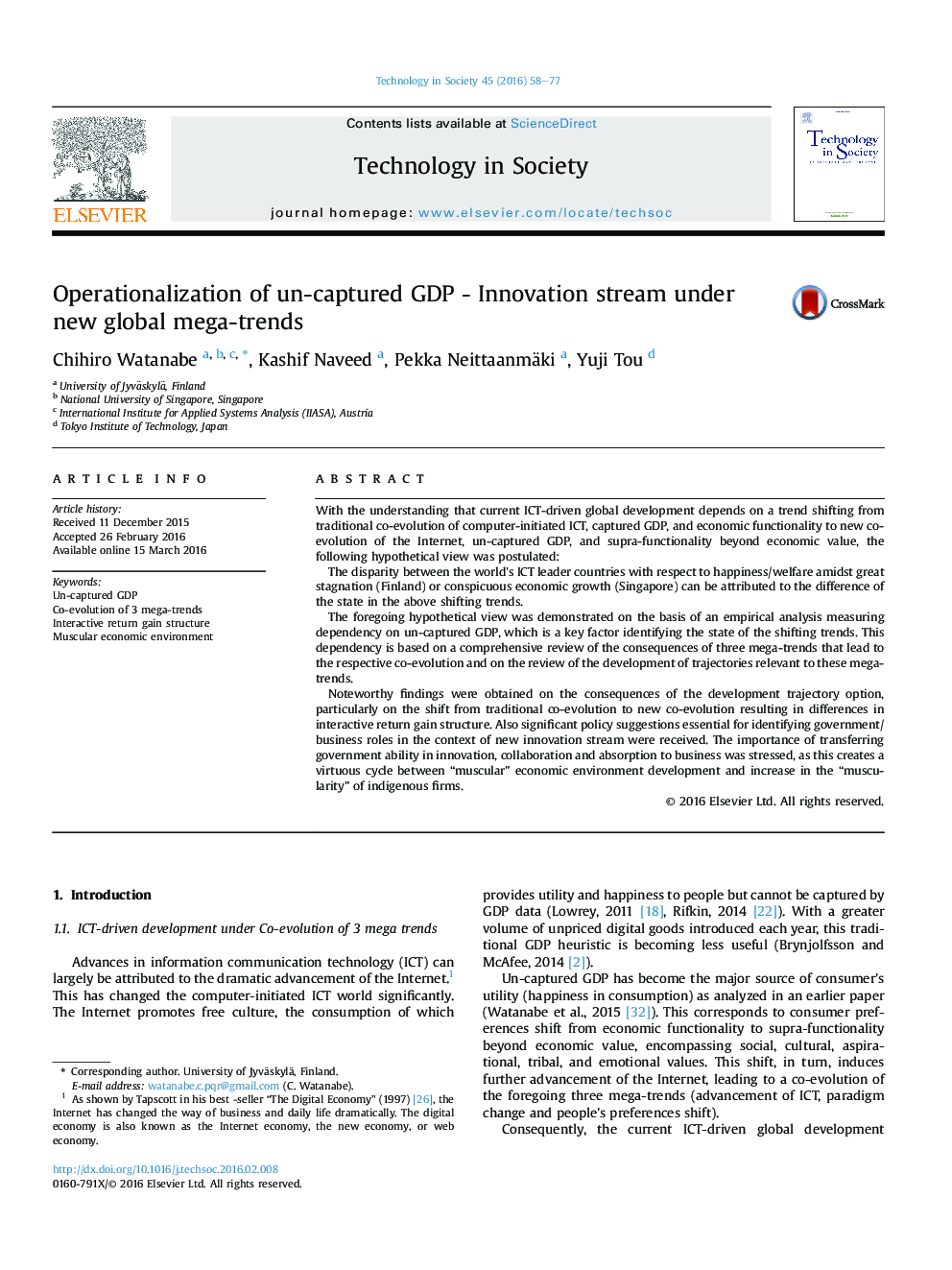| Article ID | Journal | Published Year | Pages | File Type |
|---|---|---|---|---|
| 375151 | Technology in Society | 2016 | 20 Pages |
•Developed a practical method for measuring un-captured GDP.•Demonstrated a shifting co-evolution between mega-trends.•Elucidated spin-off dynamism toward new innovation in a digital economy.•Identified engine and brake accelerating/impeding spin-off.•Significance of muscular economic environment development was highlighted.
With the understanding that current ICT-driven global development depends on a trend shifting from traditional co-evolution of computer-initiated ICT, captured GDP, and economic functionality to new co-evolution of the Internet, un-captured GDP, and supra-functionality beyond economic value, the following hypothetical view was postulated:The disparity between the world's ICT leader countries with respect to happiness/welfare amidst great stagnation (Finland) or conspicuous economic growth (Singapore) can be attributed to the difference of the state in the above shifting trends.The foregoing hypothetical view was demonstrated on the basis of an empirical analysis measuring dependency on un-captured GDP, which is a key factor identifying the state of the shifting trends. This dependency is based on a comprehensive review of the consequences of three mega-trends that lead to the respective co-evolution and on the review of the development of trajectories relevant to these mega-trends.Noteworthy findings were obtained on the consequences of the development trajectory option, particularly on the shift from traditional co-evolution to new co-evolution resulting in differences in interactive return gain structure. Also significant policy suggestions essential for identifying government/business roles in the context of new innovation stream were received. The importance of transferring government ability in innovation, collaboration and absorption to business was stressed, as this creates a virtuous cycle between “muscular” economic environment development and increase in the “muscularity” of indigenous firms.
